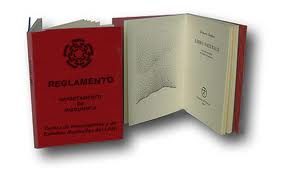 The emphasis is that force of expression or intonation with which it is sought to enhance the importance of what is said or what is being read.
The emphasis is that force of expression or intonation with which it is sought to enhance the importance of what is said or what is being read.
We say certain words with greater intensity to give more importance to our statements. When this happens we say that we emphasize our expressions. Likewise, we emphasize an action when we do it with more interest. As for its origin, this term comes from the Greek, specifically from emphasis, which translates as make see. "Juan put the emphasis on the group reaching agreement with the competition".
In communication
When transmitting ideas we do not use a flat and neutral speech with the same intonation. In fact, some words or expressions are pronounced with greater force, either by the tone of voice or by the gestures we use. We emphasize what we communicate to seduce or convince someone. With this strategy we try to attract the attention of our interlocutor. A salesperson, a politician or a teacher have to be effective with the use of language and for this it is necessary to speak well and, at the same time, shine the key words. In other words, what we say is as important as how we say it.
In the art of oratory there are several factors to take into account: the ability to empathize with others, that the speech is entertaining and suggestive and the correct use of language. And all this must be accompanied by some stellar moments in which emphasis is placed on the message that is communicated.
These techniques are known to communication experts and can be learned. In the case of political rallies, it is very common that at certain moments of the speech the politician tries to attract the attention of the attendees and for this he will emphasize his message.
The emphatic person
Anyone who tends to exaggerate in his statements is an emphatic person and, therefore, is pedantic, pompous and self-righteous. The opposite of emphatic would be natural. Sometimes it may be necessary to speak emphatically, but it is usually preferable to communicate in a natural way.
Emphasis as a figure of speech
In literature and in everyday communication, emphasis is used when something is affirmed in a very suggestive way, in such a way that a message is understood with a special intensity. Thus, statements such as "you are quite a woman" or "you are made a champion" are illustrative examples of emphasis.
Also, emphasis is seen as a way of synecdoche; while the synecdoche is another trope in which: a part of something is used to represent a whole, the whole is used by a single part, the species is used by the genus and vice versa and the material from which something is made is used for the thing.
In other words, the synecdoche is a rhetorical permission from which we can express the part of a whole and it also turns out to be one of the most common ways of characterizing a fictional character; thus the character is repeatedly described by a single characteristic of his body, such as the eyes, the hands, which will represent the person in question.
In the expression "Maria is an adult", the word adult does not refer to the human being of legal age but to the set of qualities inherent to being an adult; in this way, the maturity of the woman in question is being highlighted, which was the objective of the phrase.









